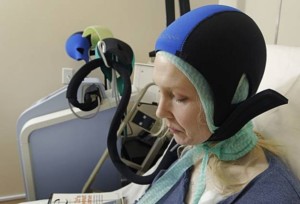
The DigniCap hair preservation method is capable of preventing just about all hair loss from chemotherapy.
In some patients. You don’t know if you’ll be one of the lucky ones.
There is no data on what percentage of patients who use DigniCap® retain most of their hair, let alone all of it.
On the other hand, I can’t see how you’d ever regret giving this cooling system a try.
The FDA approves DigniCap® for helping prevent hair loss during chemotherapy.
• Silicone cooling cap that snuggly fits the head, connected to a computer operated control and cooling unit.
• Coolant circulates through the cap’s channels continuously, cooling the scalp.
• Sensors ensure that optimal temperature is maintained at all times throughout chemo.
• Scalp temperature is cooled enough to prevent the hair follicles from absorbing chemo drugs via blood supply. Cell metabolism is reduced.
• DigniCap® has been in use for over a decade.
How is DigniCap® administered during chemotherapy?
• The infusion staff fits the cooling cap 30 minutes prior to chemo administration.
• A neoprene outer cap is placed over the silicone one for insulation.
• Throughout the infusion the patient wears the cap.
• If a restroom or other trip away from the infusion setup is necessary, the cap can be disconnected from the cooling unit, but the cap stays on the patient’s head.
• After the treatment the patient continues to wear the cap for 30 to 150 minutes (post-infusion cooling).
• After post-infusion cooling is concluded, the cap stays on an additional 15 minutes; the cap needs to warm back up.
Preventing as much hair loss from chemotherapy is very important to so many women.
Hair is more than just their “crowning glory.” A woman can be very intimately connected to her hair. Her hair may hold extreme sentimental value.
For instance, she may have loads of wonderful memories of her mother styling her hair during childhood.
Or maybe her hair takes after her beloved grandmother’s.
Preventing hair loss from chemotherapy is not a trivial matter; this desire should be taken very seriously by the patient’s family and medical team.











